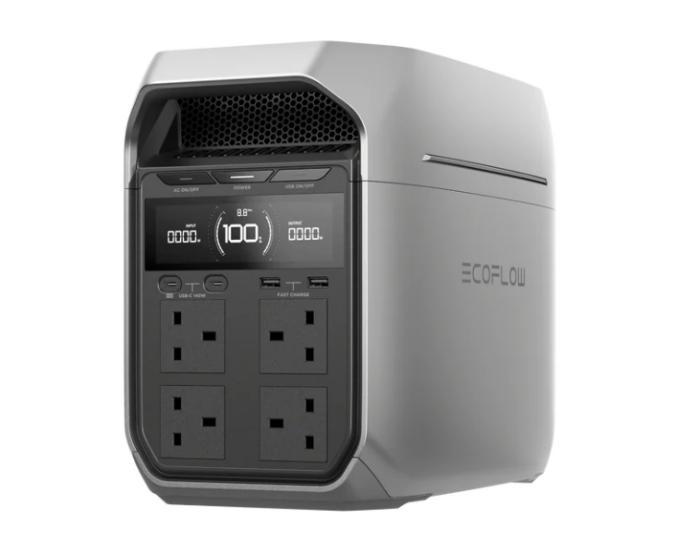A Game-Changer for Sustainable Living

Solar battery storage represents a significant advancement in sustainable living. Homeowners increasingly invest in these systems to harness solar energy effectively. These batteries store excess power generated by solar panels during sunlight hours, ensuring a steady energy supply after dark or during power outages. By integrating solar battery storage, individuals can reduce reliance on the grid, cut energy costs, and support a cleaner environment. This technology offers a practical solution for energy independence and encourages greener living by making renewable energy more accessible and efficient. As more people adopt solar battery storage, its potential to revolutionize our approach to energy utilization and conservation becomes increasingly evident.

What is Solar Battery Storage and How Does It Work?
Solar battery storage systems collect and store surplus energy produced by solar panels. During daylight hours, solar panels often generate more electricity than a household can use immediately. This excess energy is directed into batteries, storing it for later use. When the sun sets or during periods of low sunlight, the stored energy can be accessed to power the home. The system comprises three main components: solar panels, an inverter, and the battery itself. The inverter converts the direct current (DC) generated by the panels into alternating current (AC) for home use. This process not only ensures a continuous energy supply but also enhances the efficiency and reliability of solar power systems.
Benefits of Solar Battery Storage for Sustainable Living
Maximizing Solar Energy Utilization
Solar battery storage maximizes the utilization of solar energy. Instead of wasting excess power, it gets stored for later use, reducing dependence on the electrical grid. This maximization leads to significant cost savings, as homes can draw from their stored energy during peak rate periods instead of buying expensive electricity. By making full use of the power generated by their solar panels, homeowners see return on their investment more quickly. Additionally, maximizing solar energy usage encourages further adoption of solar power, as it demonstrates the practicality and financial benefits of renewable energy.
Supporting Eco-Friendly and Green Energy Solutions
Solar battery storage supports eco-friendly and green energy initiatives by reducing reliance on fossil fuels. Stored solar energy means fewer carbon emissions, contributing to a smaller carbon footprint. As more homes transition to solar power with battery backups, the cumulative effect leads to a substantial reduction in greenhouse gas emissions. This shift not only improves individual sustainability but also aids wider environmental goals, fostering a cleaner and healthier planet. Utilizing clean energy sources solidifies a commitment to environmental stewardship and paves the way for a future where renewable energy is a primary power source.
How Solar Battery Storage Contributes to Energy Security
Off-Grid Capabilities and Energy Resilience
Solar battery storage enhances energy security by providing off-grid capabilities and resilience. In areas prone to power outages or in remote locations, these systems offer a reliable alternative to traditional electricity sources. Stored energy can keep essential appliances and systems running during grid failures, ensuring continuous power supply. This resilience is crucial for maintaining household functionality and comfort during emergencies. Furthermore, off-grid capabilities provide a sense of independence from utility companies, empowering households to manage their energy needs directly and efficiently.
Enhancing Self-Sufficiency with Solar Power
By incorporating solar battery storage, homeowners can enhance their self-sufficiency. Rather than being at the mercy of fluctuating energy prices and grid reliability, they can rely on their stored solar energy. This self-sufficiency reduces monthly energy bills and protects against price hikes. It also promotes energy independence, allowing households to make eco-conscious choices without compromising on their power needs. The ability to produce, store, and use one’s solar energy marks a significant step towards a more autonomous and sustainable lifestyle.
Choosing the Right Solar Battery Storage for Your Home
Selecting the right solar battery storage system depends on several factors. First, assess your household energy consumption and peak usage times. Choose a battery with sufficient capacity to meet these needs. Consider battery lifespan and warranty, ensuring it offers long-term reliability. Evaluate the system’s efficiency and compatibility with your existing solar panels and inverter. It’s also vital to examine different battery technologies, such as lithium-ion or lead-acid, each offering unique benefits. Consulting with professionals can provide personalized recommendations based on your home’s specific requirements. By taking these steps, you can find a solar battery storage solution that offers optimal performance and value.

Conclusion
Solar battery storage is transforming sustainable living by making renewable energy more efficient and dependable. It allows homeowners to optimize their solar energy usage, reduce grid dependence, and enhance energy security. Additionally, it supports eco-friendly practices and encourages greater adoption of green energy solutions. By choosing the right solar battery storage system, individuals can enjoy significant cost savings and contribute to environmental conservation. As more people embrace this technology, its role in promoting sustainable living and energy independence will continue to grow, leading to a cleaner, greener future.





